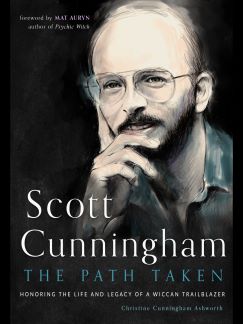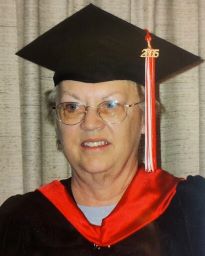[Content Note: Sexuality, evangelical approaches to (not) teaching kids about sexuality, brief mention of exploring my own body as a young child]
Twitter user @TheVictoryTori tweeted a great question earlier today:
[tweet 1118517593839755266]
I offered my own experiences in a thread and got into a short conversation with Tori. I want to rehash and expand upon those thoughts here, because this is an area I struggle with to really recall and understand just what I was taught and how.
My parents were not against sex education. They didn’t really believe in abstinence-only education. Sure, they wanted and expected my siblings and I to remain celibate until we got married. But they didn’t think that keeping us from learning about how sex and condoms work was the way to ensure that happened.
My family — and my church, for that matter — were also not deeply into the purity culture. We didn’t get inundated with books about the importance of remaining celibate until marriage. I don’t recall hearing many lectures about how having sex would make us used up tissues, previously chewed chewing gum, glasses of water that had been spit into, or any of the other harmful metaphors other evangelical kids have been stewed in while growing up. (One of my junior/senior high Sunday school teachers may have invoked one of those metaphors once upon a time, but that’s it.)
Instead, the messaging I received was more subtle and often even unspoken. It created a sense that sex and all things sexual simply were not talked about and a sense of discomfort was left over the entire topic.
To give a concrete example, I bring up a memory from…early elementary school age (I think? Maybe a little younger?) My parents, my sister, and I were all in the living room, watching television. I was sitting on the floor cross-legged with my hands in my lap. At one point (I don’t remember why I originally did it), I ran the edge of my thumb along the head of my penis through my pajama bottoms. It felt pleasant, so I did it again. I repeated this several times, enjoying the sensation each time. After a couple minutes, my mother noticed and said sternly, “Jarred. Stop that.”
My sister, having no idea what was going on, asked what I had done? My mother simply said, “Don’t worry about it.” And that was the end of the conversation. There was no follow-up conversation after the fact.
In hindsight, I suppose (and hope) the message my mother meant to get across was that touching myself there in the middle of the living room in front of everyone wasn’t appropriate, and I should really do that sort of thing in private. (Indeed, I’ve met many parents since who do a great job of affirming their children’s desire to explore their own bodies while gently reminding them that it’s a thing best done in private.”) But to a young boy in the early-to-mid single digits, my take-away was more like “touching myself there is bad.”
I’ll also note that my parents never really talked about this part of my body. Other than how to make sure I got it cleaned well. So my understanding of my own penis that I got from my parents could really be summarized as (1) it’s where my pee comes out, (2) I need to make sure it’s clean, and (3) I shouldn’t touch it (except to clean it, of course). So I think this left me feeling like that part of my body was “dirty.”
Then in fifth grade, we watched a health video that talked about puberty and sexual reproduction. I learned about how men’s bodies produce sperm which fertilize the eggs that women produce, which then becomes a baby, which the woman then gives birth to nine months later. (I don’t think the film really got into fetal development or the various stages therein. But hey, it was just supposed to be a video to give us a basic understanding of how our own bodies work and reproduction.) When I went home, I mentioned to my mother (I think) that we had watched the video, and she nodded and said an off-handed remark that if I had any questions, I could ask her. I never asked her anything. That was partly because I had no questions and partly because the way she said it made it seem like it would be an uncomfortable and awkward conversation that she really didn’t want to have anyway.
We ended up watching the same video in sixth grade as well. This time, as I mentioned on Twitter, I noticed something I hadn’t the previous year. The video explained (and demonstrated with crude animated drawings) just how the sperm managed to get from the man’s body into the woman’s body. (My brain at the time: “He sticks his [penis] where?!?!”) I found the revelation shocking, disturbing, and maybe somewhat traumatizing (given my understanding of my own penis as I discussed above, who can blame me?). Of course, a number of classmates noticed my shock and discomfort, and they found it amusing and took a few (mercifully brief) seconds to tease me about it.
I never did talk to anyone about my reaction or my feelings. Again, I didn’t feel comfortable talking to my parents, given the general “we don’t talk about this” vibe I always got in the rare instances the topic had come up.
And that “we don’t talk about that” vibe and what I had internalized about my own genitals kept with me. It affected how I felt about myself when I discovered masturbation as a teen, given the intense sense of guilt that I was doing something wrong, but knowing it felt way too good to ever stop. It also meant that anything I learned about non penis-in-vagina sexual activity came from classmates rather than my family (and my school’s sex education department sure wasn’t going to cover it!).
So that’s what my own experiences growing up and learning about/discovering my sexuality. As I said, it wasn’t so much any explicit messaging that was a problem for me, but the unintended messages I took away combined with a lack of feeling like I could truly talk about these things.
In closing, I hope this post wasn’t too personal or explicit for anyone.


